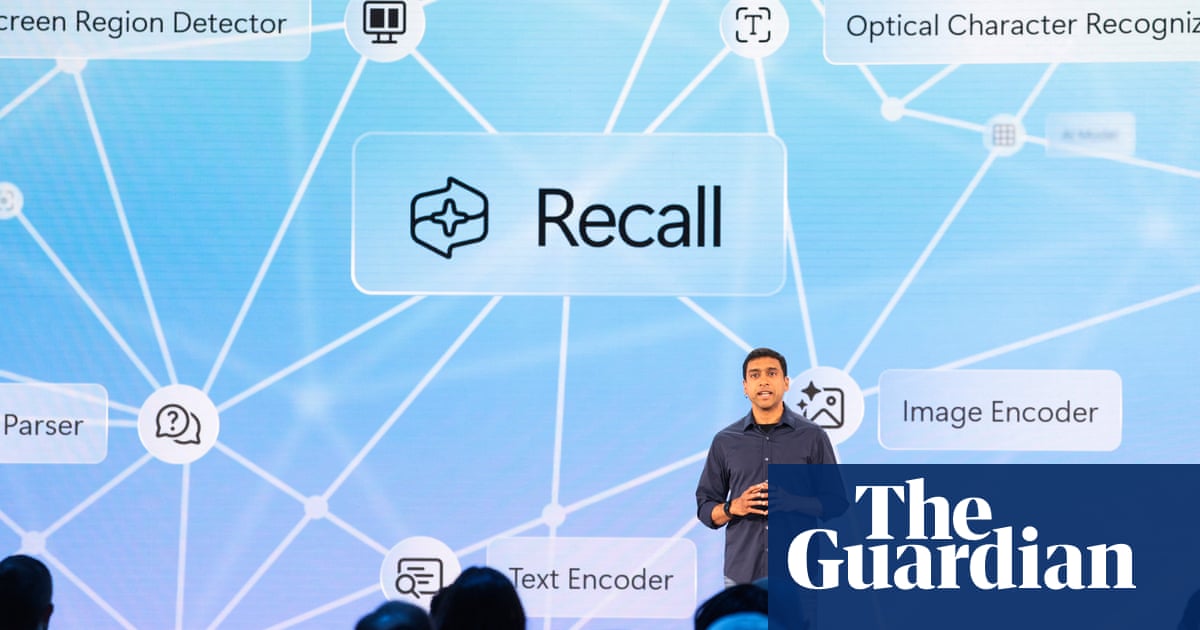Microsoft wants laptop users to get so comfortable with its artificial intelligence chatbot that it will remember everything you’re doing on your computer and help figure out what you want to do next.
The software giant on Monday revealed an upgraded version of Copilot, its AI assistant, as it confronts heightened competition from big tech rivals in pitching generative AI technology that can compose documents, make images and serve as a lifelike personal assistant at work or home.
The announcements ahead of Microsoft’s annual Build developer conference in Seattle centered on imbuing AI features into a product where Microsoft already has the eyes of millions of consumers: the Windows operating system for personal computers.
The new features will include Windows Recall, enabling the AI assistant to “access virtually what you have seen or done on your PC in a way that feels like having photographic memory”. Microsoft promises to protect users’ privacy by giving them the option to filter out what they don’t want tracked.
The conference follows big AI announcements last week from rival Google, as well as Microsoft’s close business partner OpenAI, which built the AI large language models on which Microsoft’s Copilot is based.
Google rolled out a retooled search engine that periodically puts AI-generated summaries over website links at the top of the results page; while also showing off a still-in-development AI assistant Astra that will be able to “see” and converse about things shown through a smartphone’s camera lens.
ChatGPT-maker OpenAI unveiled a new version of its chatbot last week, demonstrating an AI voice assistant with human characteristics that can banter about what someone’s wearing and even attempt to assess a person’s emotions. The voice sounded so much like Scarlett Johansson playing an AI character in the sci-fi movie “Her” that OpenAI dropped the voice from its collection Monday.
Though Microsoft has invested billions in OpenAI, the startup also rolled out a new desktop version of ChatGPT designed for Apple’s Mac computers.
Next up is Apple’s own annual developers conference in June. The Apple CEO Tim Cook signaled at the company’s annual shareholder meeting in February that it has been making big investments in generative AI.
Some of Microsoft’s announcements Monday appeared designed to blunt whatever Apple has in store. The newly AI-enhanced Windows PCs will start rolling out on 18 June on computers made by Microsoft partners Acer, ASUS, Dell, HP, Lenovo and Samsung, as well as on Microsoft’s Surface line of devices. But they’ll be reserved for premium models starting at $999.

